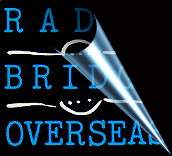 |
|
RBO-Proposal for Partners in
Africa and/or Asia |
Regional
training A – Media personnel will be taught
how to identify a local story and turn it into an
audio-format which will find the attention of
radio-listeners within and beyond the local
setting. They will learn how to make use of
digital hard- and software, and of the Internet
for this purpose.
Regional
training B – Young people get a chance to
master digital communication technology so as to
develop into providers of high quality content
from within their own culture for the Information
Highway, rather than becoming consumers of global
(mainly Northern) content only.
Establishing
a network of schools and colleges using the
Internet – This will allow pupils to learn
how to use modern communication tools whilst, at
the same time, allowing ideas and opinions to
flow freely from one country to another.
Appropriate media tools will provide students
with experience they need to be well informed,
intelligent decision makers, producers and
problem solving members within their own
societies as well as mediators between different
cultures. Just imagine how empowering this will
be to an African or Asian child! The use of
multimedia will facilitate this because teachers
and students are able to tackle various issues by
creating interactive lessons – they are able
to link up with their counterparts in other
schools not only in the region but
internationally, thus sharing experiences and new
ideas in a stimulating way.
Prospective participants will be identified from
groups at schools which are already working with
computers, preferably within an existing scheme
of "Global Learning". Priority will be
given to schools in rural areas. It may become
necessary to assist in upgrading soft- &
hardware so that pupils at such schools can be
introduced to a wider range of digital multimedia
operation. Multimedia shall be understood as a
combination of any two or more different media
types (text, graphics, images, audio, video).
Whilst researching for one story, the multimedia
approach seeks to gather material for print,
audio, picture and video at the same time.
Electronic devices will allow digital capturing
of audio, still pictures and video with the same
piece of hardware. The multimedia allows to
produce newspaper-, radio- and TV-stories and can
be combined on a CD-ROM or on the Internet.
It is important to stress RBO’s approach of
this project, targeting the local use of
multimedia technology at the outset rather than
the Internet itself. RBO believes that mastering
digital technology will create a new interest in
young people with regard to their own local
culture; in mostly orally oriented societies,
they will become empowered to create links
between generations by recording and processing
pictures, poems, tales, songs, and music in
simple digital formats which they can than turn
into attractive new local media-formats. They may
– for example – create a regular
multimedia-show which can be viewed from the hard
disk or from a self-produced CD-ROM through
data-projection on a large screen at a school or
in a community-centre.
Such experiences may see the emergence of a new
type of local entrepreneurs: School-leavers who
turn into local information providers, making the
use of new technologies at schools and within
their communities sustainable by charging an
entry-fee for such shows. They may further
incorporate results of Internet research
translated into the local language, and thus
making Internet-content accessible to their
community. With the acquisition of skills and
know-how, it may then become feasible for young
people to present aspects of their own cultures
to a worldwide Internet-audience in a way which
has shed any feelings of inferiority, as values
may have been evaluated and revised in a local
discourse. Local art and culture could be proudly
promoted, developing them even further in a
virtual context.
Production
& Distribution Facility – Once the training
described above starts to result in programs of
interest and broadcast quality, they could form
part of a new network, providing a constant feed
of stories from around selected regions in the
South, with RADIO BRIDGE OVERSEAS (KJS) –
through its website – acting as a permanent
communication-center to facilitate further
training, multi-lingual production &
distribution, and as a link between participating
storytellers and interested local radio-stations
for up- & download of programming content.
|